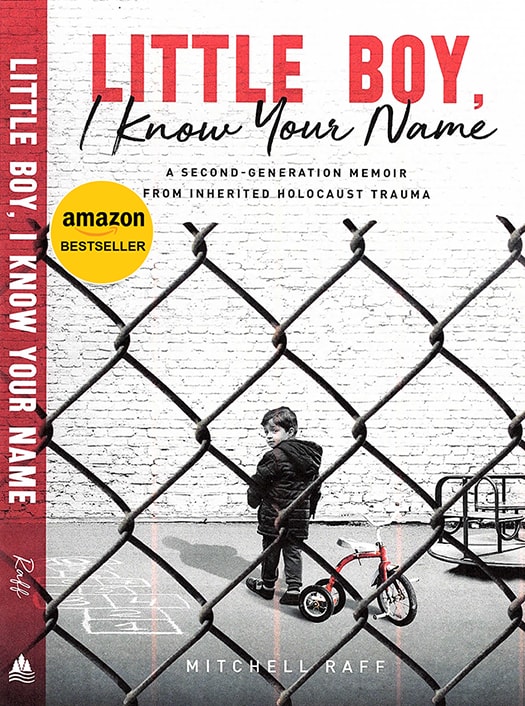Book Reviews
Overviews and Critiques

LITTLE BOY, I KNOW YOUR NAME
A SECOND-GENERATION MEMOIR FROM
INHERITED HOLOCAUST TRAUMA
by Mitchell Raff
"This is truly a book meant to be shared…
offering a beacon of light in their darkest moments."
Author Mitchell Raff deserves accolades for courageously sharing his emotionally intense personal story, a narrative that delves deep into the often-unspoken aftermath of historical trauma. More than just a typical memoir, Raff’s autobiography, titled “Little Boy, I Know Your Name: A Second-Generation Memoir from Inherited Holocaust Trauma,” distinguishes itself through its unflinching and candid honesty, revealing a psychologically heartbreaking account. It uniquely explores how the shadow of previous generations' experiences can profoundly impact the present. While many therapists traditionally delve into the immediate family history of a patient or client, it is rare that the complex history and psychological reverberations from previous generations are thoroughly considered in such a direct and personal way. Even more seldom does a survivor, or in this case, a second-generation survivor, expose the intricacies and dysfunction of his own home life to the world with such raw vulnerability.
Through his own physical and emotional experiences, Raff's personal history reveals in vivid detail how he became a product of his dysfunctional family environment. His profound and early disconnect from his parents, particularly his abusive mother, created a deep-seated feeling of detachment, leading him to believe that "home" was not a place of comfort or belonging, but merely wherever his body happened to be geographically. Once he was reacquainted with his birth mother, his already turbulent life began to revolve around the sheer act of survival. He was forced to endure her erratic and terrifying physical abuse and the equally scarring emotional cruelty. This harrowing existence was further complicated by a traumatic kidnapping and his ongoing, desperate struggles to find and receive genuine love amidst the chaos.
Raff’s recollections of his childhood paint a desolate picture, devoid of stability and emotional warmth, directly reflecting the profound impact of generational trauma. Grappling with a deep-seated inability to understand his own identity or find meaning in his existence, he subsequently drifted into decades marked by pervasive chemical and sexual addiction. This destructive path was further complicated by a series of toxic personal relationships, not only with family members but also with others in his life, perpetuating a cycle of dysfunction that echoed his early experiences.
Yet, through countless hours of counseling, the crucible of distressing personal experiences, and an unyielding determination, Raff ultimately breaks through the deeply ingrained bonds of generational trauma. His triumphant journey of recovery, culminating in the very act of writing this book, is a testament to perseverance, as it doesn't fully manifest until he reaches his sixties. This powerful narrative leaves readers with a profound sense of hope and a collective sigh of relief, understanding that such transformation is possible and can be applied to the unique challenges within their own lives. Raff clearly articulates that his singular purpose for sharing his story is to inspire others who feel lost or overwhelmed by hopelessness, urging them never to surrender. This is truly a book meant to be shared, particularly with those who may find themselves navigating even more difficult circumstances, offering a beacon of light in their darkest moments.
Pub Date: November 3, 2023
ISBN: 9781632997630
Page Count: 236
Publisher: River Grove Books
Review Posted Online: October 1, 2025
Review Program: AuthorsReading.com
Category: Non Fiction - Memoir
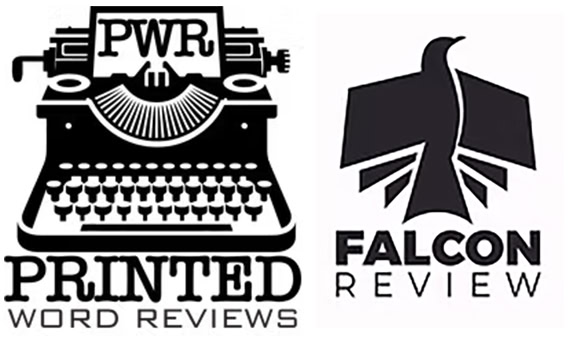
LITTLE BOY, I KNOW YOUR NAME
A SECOND-GENERATION MEMOIR FROM
INHERITED HOLOCAUST TRAUMA
by Mitchell Raff
"A testament to the power of resilience…
leaves the reader with a sense of understanding and encouragement."
Haunted by the legacy of his Holocaust survivor parents, a man navigates a tumultuous journey of abuse, trauma, and self-discovery, ultimately seeking healing and hope amidst the chaos of his past.
A Journey Through Inherited Trauma
Mitchell Raff's memoir, "Little Boy, I Know Your Name," is a raw exploration of a life shaped by the profound and often silent legacy of the Holocaust. Drawing from his own experiences as the child of survivors, Raff provides a deeply personal account of inherited trauma, and the difficult, often harrowing, journey towards healing and self-acceptance. It teaches as much about resilience as it does about the lasting impact of historical violence.
Raff's childhood was defined by the deep psychic wounds his parents, Moshe and Giza, carried from the war. His father's absence and his mother's unpredictably abusive behavior created a chaotic and damaging home environment. The memoir candidly recounts the cycle of pain that was perpetuated through silence, as his family, like many survivors, believed that burying their experiences would protect future generations. However, this suppression only compounded the damage, leaving young Mitchell feeling terrified and humiliated. While his aunt and uncle offered a semblance of love and stability, they could not fully shield him from a path of self-loathing and self-destruction.
A significant turning point in the narrative is Mitchell's relationship with his therapist, Ann. Her blunt and candid insights force him to confront his deep-seated issues and recognize the self-destructive patterns he has adopted. The memoir delves into the complexities of his relationship with his mother, Giza, highlighting the unpredictable nature of her abuse and the deep bond he shared with his half-sister, Regina. This shared struggle to understand their past and their love for each other becomes a poignant subplot, showcasing a flicker of hope amidst the darkness.
Beyond the personal narrative, Raff weaves in a broader historical context, reflecting on how Holocaust survivors were perceived and treated, particularly in Israel. He touches on the societal shame and derogatory attitudes they faced, and the pivotal role of the Eichmann trial in shifting public opinion. This wider lens transforms the memoir from a singular story of abuse into a universal meditation on the various ways trauma manifests, and the struggle of an entire generation to reconcile with an unbearable past.
"Little Boy, I Know Your Name" is a testament to the power of resilience. It is a compelling and unflinching look at the devastating effects of inherited trauma, but it also shows the possibility of breaking the cycle. Mitchell Raff's journey of seeking freedom and finding healing offers a ray of hope for anyone struggling with personal demons or the weight of a difficult past. It's a moving book that leaves the reader with a sense of understanding and encouragement.
Pub Date: November 3, 2023
ISBN: 9781632997630
Page Count: 236
Publisher: River Grove Books
Review Posted Online: September 23, 2025
Review Program: FALCON REVIEW by Printed Word Reviews

LITTLE BOY, I KNOW YOUR NAME
A SECOND-GENERATION MEMOIR FROM
INHERITED HOLOCAUST TRAUMA
by Mitchell Raff
"Mitchell’s unfiltered account of his trials, failures, and ultimate breakthrough to become the man he always wanted to be is living proof that cycles of generational trauma can be broken…"
Breaking the Inherited Cycle of Trauma
In his unflinchingly honest memoir, Mitchell Raff candidly recounts his journey to overcome generational trauma and break free from decades of addiction. With raw vulnerability, he lays bare his destructive coping mechanisms and the far-reaching consequences they wrought on his life and on those around him.
Beaten mercilessly as a child by his Holocaust-survivor mother, Mitchell was later kidnapped from Los Angeles to Israel before finding refuge with loving relatives back in America. In his adult life, the echoes of trauma forced Mitchell into patterns of substance abuse, sexual vices, and toxic relationships. But at a certain point, Mitchell explains, you need to own your decisions, for better or worse. After years of painful self-examination and work, Mitchell settled into a healthy relationship and found the strength to endure blows that once would have destroyed him.
Mitchell’s unfiltered account of his trials, failures, and ultimate breakthrough to become the man he always wanted to be is living proof that cycles of generational trauma can be broken, that even the deepest wounds can soften, and that though the road is difficult, it is within reach to not only survive but thrive.
Pub Date: November 3, 2023
ISBN: 9781632997630
Page Count: 236
Publisher: River Grove Books
Review Posted Online: September 10, 2025
Rating: 2025 NYC Big Book Award WINNER
Review Program: NYC Big Book Award
Category: Nonfiction
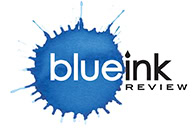
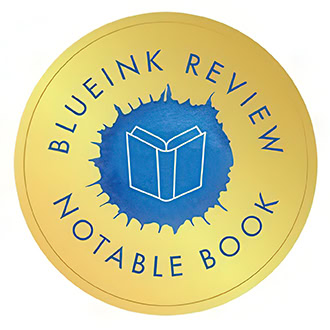
LITTLE BOY, I KNOW YOUR NAME
A SECOND-GENERATION MEMOIR FROM
INHERITED HOLOCAUST TRAUMA
by Mitchell Raff
"…dynamic memoir about healing from abuse."
 STARRED REVIEW
STARRED REVIEW
Mitchell Raff, son of Holocaust survivors, comments on inherited trauma and its effects on future generations in this dynamic memoir about healing from abuse.
Raff’s parents—both Holocaust survivors—divorced when he was a baby. Unable to care for him, his mother abandoned him at an orphanage, and his father, a broken “man trying to recover from the Holocaust…let this ride.” By age four, Mitchell was rescued by his aunt and uncle who gave him a loving home and peaceful life. But that changed dramatically when his mother returned to claim him, calling to him from outside the preschool playground fence, “Little boy, I know your name.”
Raff’s life veered into a dark world of physical abuse at her hands from which it would take decades to heal. Raff recalls: “I didn’t want to inherit the damage that my mother’s past had done to her,” but the traumas she endured as a nine-year-old hiding from the Nazis would be passed to her son, and his son.
Through the help of his therapist, Raff found healing. He managed to survive his own destructive life, but at age 64, he laments that “our family’s inheritance of trauma did not end with me, as much as I promised myself it would.” Raff explores the ways that trauma is transferred to later generations, as it was to his son, Joshua, who died young from a drug overdose.
This is a sobering look at the aftermath of the Holocaust and how its survivors managed to live under the weight of incalculable mental brokenness. Raff skillfully explores deep, nuanced themes of trauma, abuse, addiction, therapy, and more with writing that vividly engages the senses. His decision to be vulnerable and transparent with his personal struggles with addiction will endear him to readers.
Raff shares a favorite quote that “the child remains with us.” His insightful memoir will bring healing and clarity to anyone who has struggled to understand their own destructive behaviors.
Also available as an ebook and audio book.
Pub Date: November 3, 2023
ISBN: 9781632997630
Page Count: 236
Publisher: River Grove Books
Review Posted Online: August 22, 2025
Review Program: BlueInk Review
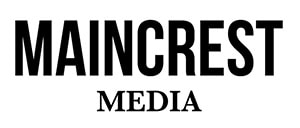

LITTLE BOY, I KNOW YOUR NAME
A SECOND-GENERATION MEMOIR FROM
INHERITED HOLOCAUST TRAUMA
by Mitchell Raff
"If you’ve ever wrestled with the demons of your family’s past, questioned who you are because of where you come from, or longed to believe that healing is still possible after decades of pain, this book was written for you. It is a heart-breaking yet life-affirming story about the arduous process of breaking free from the past to become the person you were always meant to be."

“Little boy, I know your name.” These six words, spoken through a chain-link fence, marked the moment everything began to unravel for four-year-old Mitchell Raff. The mother who had once left him was back, and with her came fear, confusion, and all forms of pain.
Born to survivors too broken to speak about what they’d endured, Mitchell inherited the fallout: a mother too damaged to love gently, and a father haunted into distance. But before it all, there was a brief, tender reprieve; a time when he lived with his warm, devoted, Uncle Issa and Aunt Sally, the only people who ever made him feel truly safe. Then, in the snap of a second, it was gone.
In Little Boy, I Know Your Name, Mitchell Raff lays bare a childhood shaped not just by personal trauma, but by the burden of a tragedy he never witnessed, but felt in every inch of — the Holocaust. Told in a raw, unflinching manner, this memoir traces Mitchell’s journey through years of abandonment, abuse, and displacement; from California to Israel and back again. We follow Mitchell from childhood closets where he hid from his mother’s rage, to the foreign streets of Israel where he was sent and left behind, to an adulthood spun out in addiction, failed marriages, fractured faith, and endless attempts to outrun the ache inside. But this isn’t just a story about pain and generational trauma. It’s about what happens when someone refuses to disappear inside it and how it’s still possible to choose tenderness after a life built on survival.
The book marks a significant contribution to the memoir genre, particularly within the context of second-generation Holocaust literature. It offers a unique and vital perspective on the aftermath of the Holocaust, focusing on the children who grew up in the shadow of their parents' unimaginable suffering. The memoir is structured chronologically for the most part, but is interspersed with insightful reflections that connect Raff’s past traumas to his adult struggles, showing how the unspoken horrors of the past manifest in the present. However, ever with all of the pain and suffering, Raff’s story is also one of resilience and hope, showcasing the enduring power of the human spirit and the possibility of healing, even from the deepest of wounds. If you’ve ever wrestled with the demons of your family’s past, questioned who you are because of where you come from, or longed to believe that healing is still possible after decades of pain, this book was written for you. It is a heart-breaking yet life-affirming story about the arduous process of breaking free from the past to become the person you were always meant to be.
Pub Date: November 3, 2023
ISBN: 9781632997630
Page Count: 236
Publisher: River Grove Books
Review Posted Online: August 4, 2025
Review Program: Maincrest Media


LITTLE BOY, I KNOW YOUR NAME
A SECOND-GENERATION MEMOIR FROM
INHERITED HOLOCAUST TRAUMA
by Mitchell Raff
"A thoughtful recounting of family dysfunction, the cultural weight of trauma, and the daunting but necessary work towards breaking such a cycle."

“The child remains with us.” Trauma, especially that suffered as a child or adolescent, does not fade easily. In his frank and unguarded memoir, Little Boy I Know Your Name, Mitchell Raff shows the generational impact of the Holocaust on his parents and guardians, and how their trauma continued through him.
Mitchell’s childhood fractured between the grip of a deeply abusive mother and his extended family’s struggle to save him.
Four years after she’d abandoned him as a baby, Mitchell’s mother Giza returned to claim him. Though his uncle Issa and aunt Sally didn’t want him to go with her, Mitchell was too small a child to resist the idea of having a Mom. With his father Moshe too deeply traumatized by surviving the Dachau concentration camp to raise a child, Mitchell packed his little suitcase and walked into a new childhood that would leave terrible wounds on his mind.
Giza had spent WWII hidden in the barn of a Christian family, abused, terrified, hungry, and horribly alone when her own mother died. While none of Mitchell’s family spoke openly about their experiences under Nazi rule, Issa and Sally sought to protect him from such trauma. Giza, however, repaid the cruelty she suffered by inflicting the same onto her son. She beat Mitchell mercilessly. Often, he would have no idea what he’d even done. Mitchell became eternally vigilant, while subsisting on little food and less affection.
For years, Mitchell could rely on only his little sister Regina and the support of Issa and Sally—although they had to remain distant or risk Giza’s fury.
When Issa began proceedings to gain legal custody of Mitchell, Giza kidnapped Mitchell and took him and his sister Regina to Israel.
Giza had become too sick with hepatitis to raise either of them, so Mitchell and Regina —who soon began going by her Hebrew name Malka—were left in the hands of the foster care system and eventually separated from one another.
Even here, Mitchell had family who loved him. His aunt Ruska and uncles Yosef and Shraga worked with Issa to continue the arduous work of bringing Mitchell home. Eventually, they succeeded, but this was not without its own losses. Malka was Mitchell’s half-sister, so his extended family had no legal claim for custody. She had to stay behind. Yosef suffered fatal heart failure after exacerbating an earlier condition in a fight over transport documents.
All of these traumas followed Mitchell into adulthood, leaving him a “well-dressed poser” who fled depression and guilt into addiction even as he built a seemingly stable life.
Though he maintained a compartmentalized life for some years, Mitchell’s harmful coping strategies would end up costing him his relationship with his wife Betty and his son Joseph. He could present himself as the man he wanted to be, but beneath the surface couldn’t truly be so.
Little Boy I Know Your Name doesn’t paint a clean picture of recovery from trauma but it shows that, even after decades, healing is possible.
Over time, Mitchell recognized the patterns of harm that had ravaged his sense of security and self. And despite even greater loss than he had yet experienced, he began to face the trauma handed down to him.
Raff maintains impressive and vulnerable honesty throughout Little Boy I Know Your Name.
He empathizes with the scars of his family while being open about his own feelings towards them—even those feelings which might seem unfair or ignoble. This story approaches generational trauma without valorizing or demonizing those who bear it. Because of this honesty, Little Boy I Know Your Name reveals myriad ways people can respond to trauma, how they try to survive it and how it can transform as it is passed down to the next generation.
Raff hopes this book will encourage others to work through the trauma they carry even when it feels insurmountable. His bold confrontation of the ugly reality of trauma—in himself as much as his family—will speak to readers with an impact that couldn’t come from a more sanitized story.
A thoughtful recounting of family dysfunction, the cultural weight of trauma, and the daunting but necessary work towards breaking such a cycle, Little Boy I Know Your Name does justice to the joint pain and love in a wounded family.
Pub Date: November 3, 2023
ISBN: 9781632997630
Page Count: 236
Publisher: River Grove Books
Review Posted Online: June 30, 2025
Review Program: Chanticleer Book Reviews by Scott Taylor
Categories: Memoir
American Writing Awards
LITTLE BOY, I KNOW YOUR NAME
A SECOND-GENERATION MEMOIR FROM
INHERITED HOLOCAUST TRAUMA
by Mitchell Raff
"...it is clear that this is more than just a life story—it is an exploration of the weight of history."
A Testament to Survival and the Shadows of the Past.
In Little Boy, I Know Your Name, Mitchell Raff delivers a haunting and deeply introspective memoir that spans decades of personal and inherited trauma. From the very first pages, it is clear that this is more than just a life story—it is an exploration of the weight of history.
Raff was raised by four Holocaust survivors, each carrying wounds too deep to articulate. His early years were shaped by their suffering, their unspoken grief, and their desperate attempts to shield him from horrors they themselves could not escape. But the past does not simply fade. When his mother—whom he barely remembered—suddenly reappeared and took him from the fragile stability he had known, his life veered into chaos. What followed was a harrowing journey that spanned continents, disrupted identities, and left lasting scars.
One of the most striking aspects of this memoir is its structure. Rather than unfolding in a linear fashion, Raff moves fluidly between past and present, mirroring the way trauma refuses to stay confined to any one moment in time. Flashbacks intertwine with flash-forwards, offering glimpses of what is to come before revealing the painful steps that led there. The effect is both disorienting and immersive, pulling readers into Raff’s fractured reality, where the past is never truly in the past.
His adulthood, though seemingly a world away from his childhood turmoil, is still shaped by the damage done. Addiction, loss, and self-destructive behaviors become recurring cycles, even as he builds a life as a husband and father. Yet amid the darkness, there is a persistent thread of hope. Through therapy, self-reflection, and an unrelenting will to survive, Raff slowly begins to unravel the tangled web of pain he inherited and inflicted.
At its core, Little Boy, I Know Your Name is not just about one man’s struggles—it is about the generational impact of trauma and the ways in which suffering manifests differently for each person who carries its weight. Raff does not offer easy answers or neatly tied resolutions, but he does offer truth—the kind that is raw and deeply affecting. His willingness to confront the most painful corners of his life makes this memoir a powerful and necessary read. This is a story of survival, but more than that, it is a story of reckoning. It is about finding a way to live with the past without being consumed by it, about confronting demons that have been left unnamed for too long. Through his unflinching honesty and evocative storytelling, Raff reminds us that while pain may be inherited, so too is resilience.
Pub Date: November 3, 2023
ISBN: 9781632997630
Page Count: 236
Publisher: River Grove Books
Review Posted Online: April 16, 2025
Review Program: American Writing Awards

LITTLE BOY, I KNOW YOUR NAME
A SECOND-GENERATION MEMOIR FROM
INHERITED HOLOCAUST TRAUMA
by Mitchell Raff
"…proof that cycles of generational trauma can be broken, that even the deepest wounds can soften, and that though the road is difficult, it is within reach to not only survive but thrive."
Breaking the Inherited Cycle of Trauma
In his unflinchingly honest memoir, Mitchell Raff candidly recounts his journey to overcome generational trauma and break free from decades of addiction. With raw vulnerability, he lays bare his destructive coping mechanisms and the far-reaching consequences they wrought on his life and on those around him.
Beaten mercilessly as a child by his Holocaust-survivor mother, Mitchell was later kidnapped from Los Angeles to Israel before finding refuge with loving relatives back in America. In his adult life, the echoes of trauma forced Mitchell into patterns of substance abuse, sexual vices, and toxic relationships. But at a certain point, Mitchell explains, you need to own your decisions, for better or worse. After years of painful self-examination and work, Mitchell settled into a healthy relationship and found the strength to endure blows that once would have destroyed him.
Mitchell’s unfiltered account of his trials, failures, and ultimate breakthrough to become the man he always wanted to be is living proof that cycles of generational trauma can be broken, that even the deepest wounds can soften, and that though the road is difficult, it is within reach to not only survive but thrive.
Pub Date: November 3, 2023
ISBN: 9781632997630
Page Count: 236
Publisher: River Grove Books
Review Posted Online: April 8, 2025
Review Program: Nonfiction Authors Association by Caitlin Segura - Nonfiction Book Award Winner (awarded gold seal)
Categories:
Nonfiction Author Association
Nonfiction Book Club


LITTLE BOY, I KNOW YOUR NAME
A SECOND-GENERATION MEMOIR FROM
INHERITED HOLOCAUST TRAUMA
by Mitchell Raff
“What really makes this book special to me is how it tackles inherited trauma. Raff’s family, like so many Holocaust survivors, tried to bury the pain. But it seeped through in ways they couldn’t control. It’s these quiet and powerful memories that make the book more than just a story about one man’s struggles.”

Readers looking for a book that hits you right in the feels and leaves you thinking long afterward, will not want to miss Little Boy, I Know Your Name by Mitchell Raff. This memoir dives into the author’s life, showing how inherited trauma from the Holocaust shaped him and the people around him. It’s raw, emotional, and brutally honest, painting a picture of a childhood full of pain, survival, and moments of unexpected love.
From the first chapter, this book pulls no punches. Raff shares heartbreaking stories of his abusive mother and the chaos that surrounded his young life. One scene that will stick with me forever is when his mom threw him out of the house into the cold night. It’s gut-wrenching, and I couldn’t help but feel for the little boy he was. But there’s balance in the way he writes. He also talks about the kindness and stability he found with his uncle and aunt, who stepped in as surrogate parents. Their love gave the story some much-needed light, and I found myself rooting for them just as much as for Raff.
The focus on his childhood trauma is the primary focus of the book, and I found myself wishing for more information about his father’s struggles or his adult life. But maybe that’s the point, though. It really allows readers to sit with the weight of everything he went through. A moment I remember was when his therapist called him a “well-dressed poser.” It was a wake-up call for Raff and, honestly, a moment that made me reflect on my own life, too. We all wear masks, don’t we?
What really makes this book special to me is how it tackles inherited trauma. Raff’s family, like so many Holocaust survivors, tried to bury the pain. But it seeped through in ways they couldn’t control. It’s these quiet and powerful memories that make the book more than just a story about one man’s struggles.
By the time I finished, I felt a mix of heartbreak and hope. The ending, where Raff reflects on his son Joshua and the possibility of breaking free from the cycle of pain, strikes just the right note. It’s not a happily-ever-after, but it’s real, and it left me believing healing is possible.
I’d recommend Little Boy, I Know Your Name to anyone who loves memoirs that dig deep. If you liked The Glass Castle or Night, Raff’s writing will resonate with you. It’s not a breezy read, but it’s the kind of book that reminds you of the strength it takes to confront the past and move forward.
Pub Date: November 3, 2023
ISBN: 9781632997630
Page Count: 236
Publisher: River Grove Books
Review Posted Online: February 1, 2025
Review Program: Literary Titan
Author Q&A: Interview with Mitchell Raff. Click here to read more.
Categories: Memoir

LITTLE BOY, I KNOW YOUR NAME
A SECOND-GENERATION MEMOIR FROM
INHERITED HOLOCAUST TRAUMA
by Mitchell Raff
"Mitchell Raff reveals a side of the Holocaust — the effects on the next generation — that are not conveyed enough in literature and formal studies. His story is deeply personal, authentic and heartbreaking."
Shedding Light on the Unique Trauma of a Holocaust Survivor’s Child
There’s a school of thought that argues how important it is for the remaining Holocaust survivors to discuss their experiences while they still can, so that subsequent generations can learn from the past. Studies have supported this line of thinking.
Estimates tag the remaining number of Jewish Holocaust survivors at about 245,000. But try to imagine the pain and difficulty for them to relive the atrocities of the past that they witnessed firsthand.
Psychologists say the silence surrounding their experiences, while having a profound effect on their lives, could also affect the next generation. Children of survivors were often raised in environments marked by unspoken trauma, often leading to anxiety, hyper-vigilance and PTSD symptoms in the children themselves.
That’s how Mitchell Raff grew up. His family, sufferers of the Holocaust, “believed that silence — suppressing the horrors visited upon them in their young lives — could cauterize their wounds and insulate” he and his sister.
“Naively,” Raff writes, “I thought I could refuse this inheritance, but it doesn’t work that way. Sometimes you can’t choose what you inherit, and my birthright included those wounds.”
That’s the backdrop behind Raff’s riveting book Little Boy, I Know Your Name, a second-generation memoir from inherited Holocaust trauma.
“Life Was a Minefield”
For much of his childhood, Mitchell lived in fear and was beaten and humiliated by his mother, seemingly without good reason. In so many ways, that mirrors the life of a concentration camp survivor: being considered unworthy and undeserving of respect, compassion or life itself, and living in that constant state. Life was a minefield.
Just consider the life of Raff’s mother: parents divorced, Nazis invade her home, she watches her own mother die, lives in loneliness, confined spaces, in constant fear of being captured. And she’s not even a teenager yet.
These vivid images are what followed the author to his adult life, with the hope of overcoming the trials and traumas of Issa and Sally, his beloved uncle and aunt who raised him, and his own father and mother. It’s not something for which people can snap their fingers and make this influence on them go away.
Raff as a four-year-old lived in Los Angeles with Issa and Sally until one day, through the fence at a playground, an old, frail woman calls the young boy over and declares “Little boy, I know your name.” It’s his mother, who assumes custody of the child and in the process removes any love and contentment from his upbringing. Eventually, she takes the boy and his sister to Israel, where they are placed in other homes and attend schools where the primary language is Hebrew. Eventually, Issa and Sally rescue him and take him back.
The effects of Raff’s childhood and upbringing carry through to adulthood. “It was impossible to expect I could take all the hits of my childhood and not bleed or break.”
He marries a girl outside the Jewish religion, tries to find a trade for a career, and has a son. The scars remain, and he goes down a difficult path. And there’s the effect on the third generation as well.
The Looming Shadow of Tragedy
Mitchell Raff is a gifted storyteller who, by writing this book, relives his own story in a manner that his ancestors could not. He is talented in recreating the settings, emotions and actions that had such a profound effect on him. And he reveals a side of the Holocaust — the effects on the next generation — that are not conveyed enough in literature and formal studies. His story is so personal, authentic and heartbreaking.
Little Boy, I Know Your Name must have been a hard book to write but an important story to tell. And Raff tells it quite well.
Pub Date: November 3, 2023
ISBN: 9781632997630
Page Count: 236
Publisher: River Grove Books
Review Posted Online: October 24, 2024
Review Program: BookTrib by Jim Alkon
Categories: Nonfiction and Memoirs

LITTLE BOY, I KNOW YOUR NAME
A SECOND-GENERATION MEMOIR FROM
INHERITED HOLOCAUST TRAUMA
by Mitchell Raff
"The book is a powerful exploration of the trauma and pain that can be passed down through generations and the author's struggle to come to terms with his own identity and sense of self."

Little Boy, I Know Your Name by Mitchell Raff is a personal and emotional exploration of the author's journey as a Holocaust survivor's son. The book is a powerful exploration of the trauma and pain that can be passed down through generations and the author's struggle to come to terms with his own identity and sense of self. The book is divided into Part One, “A Mother's Betrayal,’ and Part Two, “The Inheritance.” The first part is a detailed account of the author's childhood and his relationship with his parents, who were both Holocaust survivors. The author's parents, Moshe and Giza, were both survivors of the Holocaust, and their experiences had a profound impact on their lives and their relationships with their son. The author's mother, Giza, was particularly traumatized by her experiences during the war, and her behavior towards her son was often erratic and abusive. The author describes how his mother would usually lash out at him, physically and emotionally, and how he would feel like he was walking on eggshells around her. The young boy is torn from her home, whipped with a belt, denied food, and kidnapped to Israel at the age of ten. This is the story of a boy who has been systematically taught to hate himself and who eventually breaks free from trauma to become the man he has always wanted to be.
Despite the challenges he faced in his childhood, the author's parents did their best to provide for him and give him a stable home. They were both hardworking and loving, but their demons and struggles also haunted them. The book's second part is a more introspective exploration of the author's experiences as a Holocaust survivor's son. The author describes how he struggled to come to terms with his own identity and sense of self and how he felt like he was living in the shadow of his parent's experiences. The author explores the theme of silence and secrecy in his family and how it was often used to cope with the trauma of their experiences. He describes how his parents rarely talked about their experiences during the war and how this silence created a sense of mystery and shame around their past. The sophistication in the characters of his parents is brilliantly conveyed in this narrative. The author describes his father as a broken man and cleverly captures the psychological troubles of his mother. The prose is crisp — lyrical — and filled with emotionally rich, albeit disturbing passages. Mitchell Raff is a great storyteller who succeeds in capturing the most complex of human emotions, finely drawing a portrait of a dysfunctional family while pulling readers into the darkness inhabiting his inner world. Moments like when the author’s mother sees him for the first time after she abandoned him at an orphanage are profoundly moving — the mixture of sadness and longing and her sense of desperation are impeccably written. Little Boy, I Know Your Name is a memoir that reads like fiction, emotionally rich and transporting. It is a story of being broken and then walking towards healing and freedom, and readers will enjoy the role played by Marie in the author’s journey.
Pub Date: November 3, 2023
ISBN: 9781632997630
Page Count: 236
Publisher: River Grove Books
Review Posted Online: September 25, 2024
Review Program: The Book Commentary by Cristina Prescott
Categories: Biographies & Memoirs
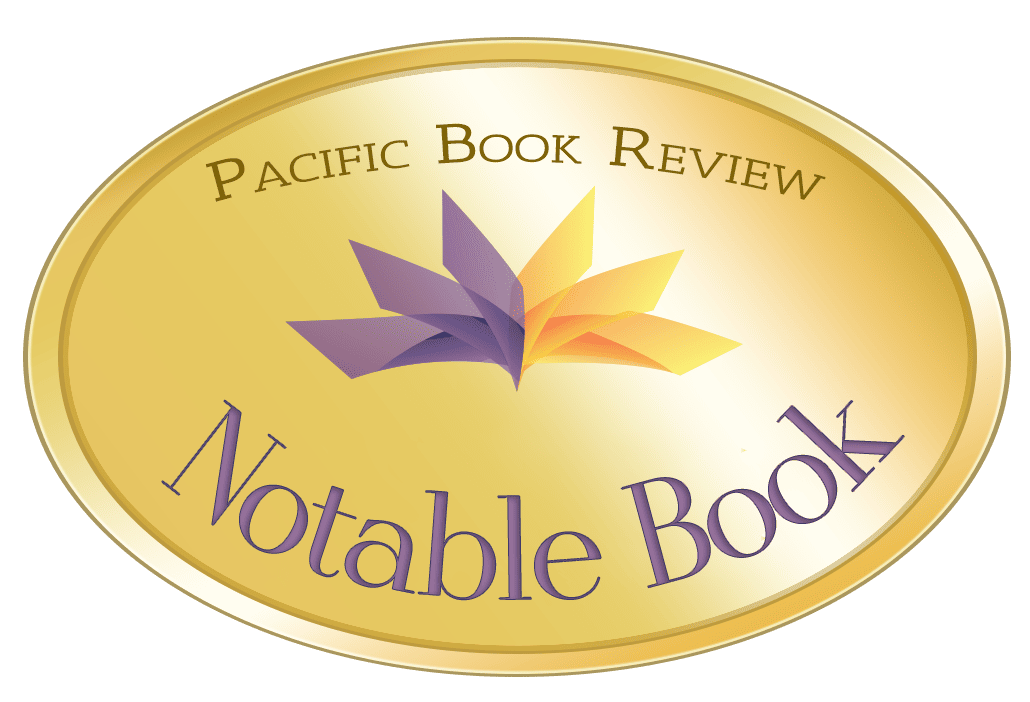
LITTLE BOY, I KNOW YOUR NAME
A SECOND-GENERATION MEMOIR FROM
INHERITED HOLOCAUST TRAUMA
by Mitchell Raff
"This is one of the most compelling memoirs I have read in a long time… Little Boy is tragic, heartbreaking, captivating, and, in the end, quietly triumphant."
This is one of the most compelling memoirs I have read in a long time; it is heartbreaking, educational, and fascinating. Author Mitchell Raff is a great storyteller. His writing is acutely articulate and his willingness to delve into his and his family’s trauma gives this memoir a raw authenticity. As the subtitle suggests, this book explains just how systemic trauma is passed on from one generation to another. It is often unintentional, subconscious, and manifests in different ways in each subsequent generation. How is a familial trauma or a broader social ill (systemic racism or anti-Semitism) perpetuated across generations? Perhaps the best way to understand it, and it’s all too real but sometimes cloaked manifestations, is to learn of it through the lens of a profoundly personal memoir. Little Boy, I Know Your Name: A Second-Generation Memoir From Inherited Holocaust Trauma is this type of education, wrapped in a spellbinding story.
Mitchell was born into trauma. His father, mother, aunt, and uncle were all Holocaust survivors. His father was broken. His mother was full of rage. His aunt and uncle were saint-like by comparison. But what they all shared was a quiet suppression of the trauma they endured. While his father was no more than a shadowy figure in his life, his mother was all too present. First abandoning him to an orphanage and then reclaiming him at age four, she subjected him to years of abuse. Mitchell understood she was acting out of her past trauma. This was something he understood but could not fully forgive. After kidnapping him and his sister to Israel, Mitchell’s only hope was to find a way to live with his Uncle Issa and Aunt Sally back in California. Issa was his “messiah” in so many ways and instrumental in his having any chance of a hopeful life.
As an adult, Mitchell was determined to not repeat the mistakes of his parents. He did what he could to avoid his traumatic inheritance and certainly did not want to pass it on to his son. Despite those efforts, he would embark on a series of extreme self-destructive behaviors, essentially living the life of a stereotypical rock star: affairs, drugs, prostitutes, etc. As he inherited family trauma, he also inherited the family art of suppression. He led a double life. He hid the rock star side of his life from his other persona: a decent father and husband who ran a successful business. Through therapy and honest introspection, he realized that his vices were trying to fill the void left by an absent father and an abusive mother. Thus, the trauma he inherited was simply disguised as his own, new vices. One of the things this book brilliantly illustrates is how, forgive the cliché, “hurt people hurt people.” Whether it is systemic anti-Semitism or trauma, familial or social, this book shows how those perpetuating the “hurt” across generations are often in denial about it or are not even aware how they are doing it.
Little Boy is tragic, heartbreaking, captivating, and, in the end, quietly triumphant. Yes, this story tells a tale of a vicious cycle of psychological damage. There is a bleakness about it but there is also hope of redemption. Does Mitchell become the man he always wanted to be, thus breaking the cycle? If you are like me, you will read this book all in one sitting.
Pub Date: November 3, 2023
ISBN: 9781632997630
Page Count: 236
Publisher: River Grove Books
Review Posted Online: March 27, 2024
Review Program: Pacific Book Review by Jason Lulos (awarded notable book gold seal)
Categories: Biographies & Memoirs

LITTLE BOY, I KNOW YOUR NAME
A SECOND-GENERATION MEMOIR FROM
INHERITED HOLOCAUST TRAUMA
by Mitchell Raff
"Rejecting a family tradition of silence to catalog inherited and individual wounds,
Little Boy, I Know Your Name is a powerful memoir."
Clarion Rating

Mitchell Raff’s forthright memoir Little Boy, I Know Your Name centers on his relationships with the four Holocaust survivors who raised him, showing how their trauma impacted his life.
Four-year-old Raff didn’t remember his mother. He lived in Los Angeles with his Uncle Issa and Aunt Sally. His father, nearly catatonic after surviving Dachau, lived nearby. One day, his mother, who’d also survived the Nazi regime, showed up at his preschool, wanting him to come live with her and his little sister. Fascinated by news that he had a sister, Raff moved in with his violent, traumatized mother, who ended up kidnapping him during a pending custody case and taking him to Israel.
The chaos that followed is mirrored in an impressive literary strategy: the book’s narrative structure is a chronology interrupted by frequent flashbacks and flash-forwards. This structure also echoes the book’s central theme about Holocaust trauma crossing generational boundaries. Time shifts are signaled by paragraph breaks, insertion of dates, and other transitional devices that make it easy to follow the story, even when the shifts are rapid and profound.
The quick shifts in time also contribute to the book’s urgent pace, creating active suspense; when extraordinary future outcomes are revealed in a flash-forward, it generates a desire to know how in the world those outcomes could have occurred. Early in the book, it’s revealed that Raff’s cherished son died as a young man, but the particulars of that tragedy are withheld until the final chapter. In a similar pattern, Raff questioned how his mother’s silence and rage continued even after her death to create heartbreak in his sister’s life. When that question is answered many pages later, it’s satisfying.
The flash-forwards also enhance the memoir’s reflective moments. When conversations with a therapist Raff consulted as a sober, older man are interspersed with scenes from the active addictions of his youth, these conversations open up ideas about motivations for Raff’s self-destructive behavior as he continued his family’s tradition of silence, compartmentalizing his different identities. Returning to the US as a teenager, he once again became Issa and Sally’s beloved boy, but another part of him was still his mother’s whipping post. As an adult, he was a good husband and a loving father, as well as a sex addict and drug addict; the latter identities he kept secret.
Eschewing research on trauma impact in general, epigenetics, or the specifics of Holocaust trauma, the book relies on personal experiences as its evidence. Further, the dramatic contrasts between Raff’s mother’s violence and his father’s extreme passivity suggest that each survivor’s way of coping is unique, and each survivor’s descendants will therefore experience different impacts. This family’s common coping mechanism was silence; elegant prose is devoted to their belief that silence could “cauterize their wounds,” even while breaking from tradition to disclose Raff’s own traumas and transgressions.
Little Boy, I Know Your Name is a memoir about tragedy, lasting trauma, and recovery that is rooted in a family legacy of surviving the Holocaust.
Pub Date: November 3, 2023
ISBN: 9781632997630
Page Count: 236
Publisher: River Grove Books
Review Posted Online: March 27, 2024
Clarion Rating: 5 out of 5
Review Program: Foreword Review by Michele Sharpe
Categories: Autobiography & Memoir / Self-Help
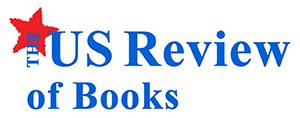
LITTLE BOY, I KNOW YOUR NAME
A SECOND-GENERATION MEMOIR FROM
INHERITED HOLOCAUST TRAUMA
by Mitchell Raff
"If I and many others like me are children of the Holocaust, the Holocaust is a weirdly absent parent. We feel its presence but never enough to truly know it."
After marrying in Israel, the author’s parents moved to Los Angeles shortly before he was born. His father was a survivor of the concentration camp known as Dachau, and his mother survived by being hidden in a barn where she watched her own mother die and was in constant fear of being turned into the Nazis by the abusive family who owned the property. When his parents split, his aunt and uncle took him in. They, too, survived the war and kept their scars hidden. However, they worked extremely hard to provide for Raff and loved him very much. Later, Raff’s mother took him back, luring him away with the promise of the sister he didn’t know he had.
Unfortunately, Raff's mother was verbally, psychologically, and physically abusive. Eventually, his aunt and uncle were able to get the state involved with the family. The eve before the court was likely going to return Raff to them, his mother took the children and fled to Israel. Yet, her hepatitis was so bad that he was sent to live with relatives who were still in Israel, and his half-sister went to an orphanage. After dealing with the courts in Israel, Raff was allowed to return to Los Angeles and his aunt and uncle. This was a profound improvement, but the pain and trauma he had been subject to, in addition to the inherited trauma from his parents, led Raff to heavy drinking, drugs, sex addiction, and failed relationships. In time, as he began to seek counseling for his issues, he noticed the same behaviors in his own son. Although he realized he needed to change his life, life still held more trauma and tragedy for him.
The idea of generational trauma can seem somewhat theoretical when discussed. The harmful effect of historical abuse passed down through generations makes sense, but more as a concept than a concrete behavior to which one can specifically point. Raff’s memoir does an excellent job of showing the direct, seeable impact generational trauma can have on a person and the influence it has on one's development and decision-making. Through the candid examination of his own life, he brings this abstraction, along with the damage of child abuse, into stark reality.
Although generational trauma wasn’t in the global conversation until the 1960s, it is present in novels throughout literary history. Modern novels dealing with the same themes include Amy Tan’s The Joy Luck Club, Isabel Allende’s House of Spirits, and Lionel Shriver’s We Need To Talk About Kevin. Each of these fiction titles deals with several themes, including generational trauma. Raff’s memoir separates itself in that this trauma is the central theme, and readers effectively watch it unfold as Raff’s story is told. In many ways, it is the central antagonist, even more than his abusive mother or his destructive choices.
Raff’s writing mainly consists of clean, unadorned sentences orderly chronicling his life. This makes it an easy and quick-to-read book. The dialogue of Raff as a child feels off at times, coming across as a bit more adult than that of a child, and there are points where the author seems too close to the material to view it objectively. However, these are also typical components of memoirs, observable facets that distinguish them from standard autobiographies. The frank discussion of his existence and the excellent example of generational trauma the book provides give the book a wide appeal, and readers will undoubtedly be moved by Raff’s story while developing a better understanding of its central theme.
Pub Date: November 3, 2023
ISBN: 9781632997630
Page Count: 236
Publisher: River Grove Books
Review Posted Online: March 20, 2024
Review Program: The US Review of Books by Mark Heisey
Categories: Nonfiction, Memoir & Autobiography

LITTLE BOY, I KNOW YOUR NAME
A SECOND-GENERATION MEMOIR FROM
INHERITED HOLOCAUST TRAUMA
by Mitchell Raff
"Heartfelt and hopeful—
a touching coming of age story about a boy born to Holocaust survivors."
Mitchell Raff’s Little Boy, I Know Your Name takes its title from a memorable scene in the memoir’s first chapter that will stick with me for years. His mother said those words to him from the other side of a fence at pre-school, introducing herself to her son and starting him on a journey that would alter the course of his life. Raff spends some time on how the Holocaust survivors in his family believed suppression of their horrific memories would insulate future generations from what they had survived. The choice is understandable, and things might have worked out differently for Raff if his mother had not come calling that day in the playground when he was four years old.
“And I can draw a direct line between that day and the day my inheritance came calling for me. “Little boy, I know your name,” she said. Her accented English was soft. I stopped pedaling my beat-up little red tricycle.”
Culture introduces children to an idealized version of the family: parents who love unconditionally and atomic family units that make dreams seem more accessible, and perhaps biology instills in us a need to know our parents. I don’t know, but I can relate to the feeling Raff eloquently describes.
When his mother said she wanted him to come live with her and his little sister, it seemed like that promised happiness had arrived, calling Raff toward a better life. He left the home of his loving aunt and uncle, trading it for a chaotic existence with his mother. He would blame himself for not knowing what would happen. He would consider whether his aunt and uncle might have done a better job at warning him, and he would wonder why things were the way they were. He would ask himself what he’d done to deserve abuse. He would try to become a better son and seek love from a mother incapable of understanding his desires. He would blame himself for not protecting his sister and hold himself accountable for hurting people who tried to help him. It’s easy to understand how this self-centered approach developed as a coping mechanism. Blaming himself gave Raff a sense of control over circumstances outside of his power, while scrutiny of details made it seem like if he had changed one choice, everything would have been different. At his core, Raff was always hoping for something better.
This memoir is hard to put down. We are given an immersive look inside the aftermath of Holocaust trauma, but it also is so much more than that. Raff’s memoir is a treasure. It tells a wholehearted story about a boy who will forever be a child born to Holocaust survivors but also the story of a boy growing into a man surviving his own trauma. Raff could have continued distracting himself from his pain, but he shares a valuable lesson in this story. And in the process, he’s ending a broken cycle for himself and those he loves. Mitchell Raff’s Little Boy, I Know Your Name would be great for anyone looking to learn about the aftermath of the Holocaust. It’s a tale of companionship for those who suffer as they continue to ruminate on and distract themselves from the traumatic parts of childhood and life.
“We…never know where healing, love, and a desire to be better will lead us.”
Pub Date: November 3, 2023
ISBN: 9781632997630
Page Count: 236
Publisher: River Grove Books
Review Posted Online: March 17, 2024
Review Program: Independent Book Review by Susan Morris
Categories: Nonfiction / Memoir
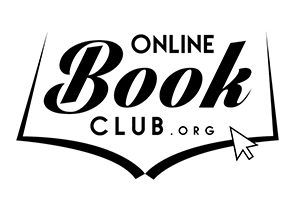
LITTLE BOY, I KNOW YOUR NAME
A SECOND-GENERATION MEMOIR FROM
INHERITED HOLOCAUST TRAUMA
by Mitchell Raff
"It takes courage and self-awareness to prevent the spread.
His story is a lesson, a guide, and a warning."

Pedaling his red bicycle in the playground of his Jewish community association preschool, a woman on the other side of the fence said words that would change his life forever: "Little boy, I know your name." She asked if he wanted to stay with his sister. Those were enough words to cast a spell on a four-year-old who just found out he had a sibling. Mitchell left the safety net of Uncle Issa and Sally to stay with his mother, Giza, the woman who knew his name.
Little Boy, I Know Your Name by Mitchell Raff is the author's life account of growing up as a child of Holocaust survivors. It is the story of a child raised by an abusive mother and a broken father. It is the story of a child who inherited Holocaust trauma.
There are lots of positive aspects to this book. Mitchell's story is soulful, heart-wrenching, and intriguing. No wonder anyone he told his story to would encourage him to write a book. But even more captivating are his story-telling techniques. He delivered his story beautifully. From the prologue, he had me intrigued and invested in his story. He could seamlessly switch from a one-time frame to another. He started with the story of his mother approaching him in the playground, and soon after, readers were learning of some of the Holocaust experiences his family had. The seamless storytelling was a pleasurable reading experience for me. The book had just one error. It was professionally edited.
Mitchell wrote down his story for people who are in pain. I find this book a valuable tool for people struggling with trauma, pain, or a repetitive cycle of abuse. It majorly highlights the unhealthy coping mechanisms survivors adopt to try to outlive their pain. For Moshe, Sally, and Giza, they chose not to speak of their Holocaust experiences. For Mitchell, he started to dissociate at a young age, and as he grew older, he learned to compartmentalize his different personalities. Maybe once we learn to familiarize ourselves with these unhealthy patterns, we will know when to seek help and try to heal. Traumas could have a long-lasting effect, not just on our lives but also on the next generation. It takes courage and self-awareness to prevent the spread. His story is a lesson, a guide, and a warning.
There is nothing negative about this book, so I rate it 5 out of 5 stars. It was a pleasurable read—entertaining, educating, sorrowful, yet captivating. I recommend this book to survivors of abuse and people dealing with inherited traumas.
Pub Date: November 3, 2023
ISBN: 9781632997630
Page Count: 236
Publisher: River Grove Books
Review Posted Online: January 13, 2024
Review Program: Online Book Club

LITTLE BOY, I KNOW YOUR NAME
A SECOND-GENERATION MEMOIR FROM
INHERITED HOLOCAUST TRAUMA
by Mitchell Raff
"At once intensely personal and historically significant."

Gripping autobiographical reflections from a child of Holocaust survivors, Little Boy, I Know Your Name by Mitchell Raff is a visceral, heartrending, and timely work of history and memoir.
Growing up in a non-traditional Jewish family permanently scarred by concentration camps and gulags, young Mitchell also had to navigate split custody with his unpredictably violent mother, acting as guardian to his half-sister while having to endure familial abuse. When he is uprooted and moved to Israel, he doesn’t escape his mistreatment, which is compounded by a life of isolation and uncertainty about the future, without his beloved family members there to watch over him.
Finding allies and unexpected kindness where he can, Mitchell details the unbelievable battles of his young life, both in Israel and America, from misunderstood trauma responses and sex addiction to broken cycles of intimate abuse and long-form depression. Infidelity, marriage, the burden of childcare, and countless other emotional ills play out on these pages and in his life, making Raff’s story a testament of resilience and repentance – too often for the sins of others.
As the child of survivors, and a survivor of violence in so many forms as a child, Raff has alchemized his pain and the legacy of tragedy into profoundly accessible wisdom about healing, purpose, and the essential autonomy of every life. Displaying a self-awareness that can only come through intense introspection and a lifetime of reflective analysis, he gives voice to a struggle that millions of people still battle with to this day, for a story that is at once intensely personal and historically significant.
There has been a recent awakening of awareness to trauma and healing therapies, making some of the stories and anecdotes from this challenging narrative even harder to bear. The psychological toll the author endured is unfathomable, yet he reflects with empathy and attempts to understand the unfair treatment he suffered for so many years, sometimes from the very sources he had turned to for love. One of the most powerful lines still echoes long after reading, summarizing much of the existential struggle this book attempts to unravel – the sinister intertwining of violence and victimhood, revenge and pacifism, moving forward and being held back by the past: “If I and many others like me are children of the Holocaust, the Holocaust is a weirdly absent parent. We feel its presence but never enough to truly know it.”
The language is masterfully woven throughout, and there is a rawness of truth and tragedy percolating beneath every line of the narrative. The vocabulary use is lyrical without feeling stilted, and while much of the dialogue is short and straightforward, it captures the intensity of meaning that can be buried within simple words and exchanges. Given the public’s renewed focus on Jewish history, this book offers a powerful reminder of the unparalleled horrors of the Holocaust, and the steady funnel of intergenerational trauma it has inflicted on the world. This is not intended to be an easy read, but it is an essential one, regardless of ethnicity, religion, or age.
Pub Date: November 3, 2023
ISBN: 9781632997630
Page Count: 236
Publisher: River Grove Books
Review Posted Online: January 8, 2024
Review Program: Self Publishing Review
Categories: Book Reviews, Lead Story
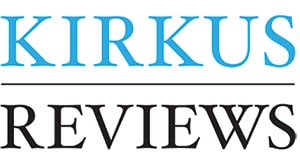
LITTLE BOY, I KNOW YOUR NAME
A SECOND-GENERATION MEMOIR FROM
INHERITED HOLOCAUST TRAUMA
by Mitchell Raff
"An absorbing remembrance of a difficult psychological legacy."
The son of Holocaust survivors explores generational trauma in this memoir.
“When speaking of my childhood,” writes debut author and charity director Raff, “I learned to be careful…knowing that often it would lead to more uncomfortable questions.” As the son of Holocaust survivors, the author’s story may not be as harrowing as his elders’, but it was shaped by the same traumatic events. His mother, for instance, watched his grandmother die during the war, and witnessed Nazis invading her home in Poland; according to Raff, her later life was made up of actions that were “reckless and selfish,” as she lived a nomadic life in Canada, the United States, and Israel. One of the central traumas of the author’s life was when his divorced mother kidnapped him in 1969 and took him to Israel to live with her; eventually, his father reclaimed him. As a child, Raff was frequently told that the “worst thing” he could do to his family was marry someone who wasn’t Jewish—a sentiment that lingered in his mind well into adulthood, when he married a woman outside the faith. Although he was a successful California businessman, the author was, in the words of his therapist, “a well-dressed poser” for much of his adult life, as he masked his emotional pain behind a façade of confidence. In addition to exploring the author’s inherited suffering, the book also surveys his role as “the connective tissue between my son, Joshua, and the trauma of my parents’ generation.” Overall, this is a harrowing, empathetic, and profoundly personal work that’s unafraid to explore Raff’s family’s “fumbling” response to mental anguish; he effectively calls it a cycle of pain that “lacerates those we choose to love.” Informed by years of personal therapy, the book is intended to give hope to others who may feel hopeless. Some may find the book’s nuanced portrayal of imperfect survivors to be uncomfortable at times, but its authentic narrative from a second-generation survivor is a thoughtful addition to Holocaust literature.
An absorbing remembrance of a difficult psychological legacy.
Pub Date: November 3, 2023
ISBN: 9781632997630
Page Count: 236
Publisher: River Grove Books
Review Posted Online: January 5, 2024
Review Program: Kirkus Indie
Categories:
Biography & Memoir | Current Events & Social Issues | Psychology | Ethnicity & Race
